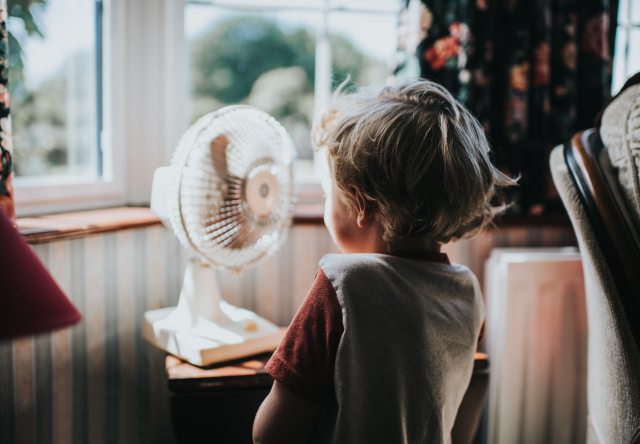Beat the summer heat: Be informed and take precautions
| Healthy You | Safety

8 steps to prevent heat-related illness and what to do in case one happens
When temperatures soar into the 90s or above, emergency rooms and medical clinics often see a spike in conditions such as heat stroke, heat exhaustion, heat cramps, sunburn and heat rash.
If the forecast in your area warns that high temps are heading your way, take steps to safely ride out the heat wave. And stay alert for signs of dangerous heat-related conditions.
“People in the Northwest aren’t used to dealing with high temperatures on a regular basis. They often forget to protect themselves or don’t recognize the symptoms when they are experiencing a heat-related illness,” says Robin Virgin, MD, a PeaceHealth Medical Group physician. “It’s so important to be informed. And to take precautions because conditions such as heat stroke can be life-threatening.”
Steps for prevention
To prevent heat-related illnesses, PeaceHealth recommends the following safety tips:
- Never leave anyone — child, adult or pet — in a vehicle. The inside temperature of a car can quickly reach a deadly 120 degrees.
- Drink plenty of fluids little by little throughout the day. Avoid drinks with caffeine or alcohol. Don't drink large amounts of plain water all at once. This can lead to water-toxicity.
- Check on family, friends and neighbors who do not have air conditioning, who spend much of their time alone or who are more likely to be affected by the heat.
- If you don’t have air conditioning, seek relief from the heat during the warmest part of the day in places like schools, libraries, theaters, malls, etc. Most communities offer cooling shelters.
- Wear loose-fitting, lightweight, light-colored clothing. Avoid wearing dark colors because they absorb the heat of the sun’s rays.
- Slow down, stay indoors and avoid strenuous exercise during the hottest part of the day.
- Use a buddy system when working in excessive heat. Take frequent breaks if working outdoors.
- Check on animals frequently to ensure that they are not suffering from the heat. Make sure they have plenty of cool water.
Conditions that need urgent attention
Even with the best of intentions or efforts to stay cool, it’s easy to get into a danger zone during the summer season. If that happens, here’s what to watch for and the steps to take.
Heat exhaustion. Signs include cool, moist, pale or flushed skin; heavy sweating; and headache, nausea, dizziness and weakness. If you or someone you know is experiencing these:
- Move to a cooler place (shade or indoors).
- Drink small amounts of water.
- Remove or loosen tight clothing.
- Apply cool, wet cloths or towels to the skin.
If the person refuses water, vomits or begins to lose consciousness, call 9-1-1.
Heat stroke. Symptoms include headache; hot, red skin; changes in consciousness; vomiting; and lack of sweating, despite heat.
Call 9-1-1 immediately if someone shows signs of heat stroke. While you’re waiting for aid:
- Move the person to a cooler place.
- Quickly cool the person’s body by immersing them up to their neck in a tub of cool water, spraying them with cold water, or covering the person with cold, wet towels or cloths.






